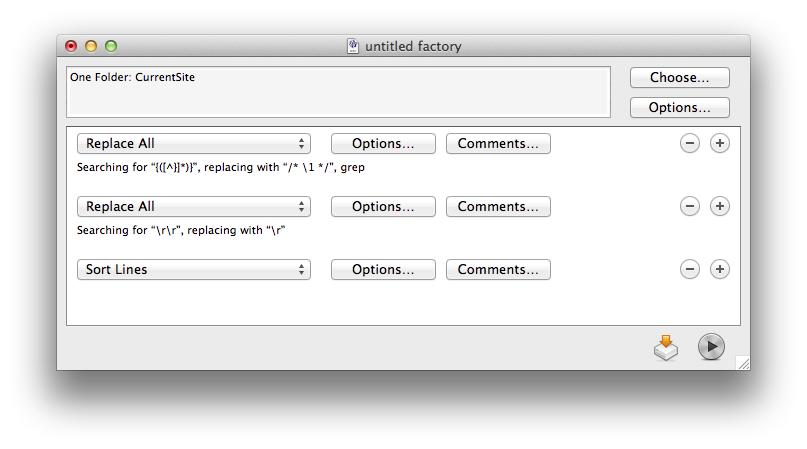

For a long time, it was THE code editor for mac users who wanted a graphical interface but not an IDE.

It had auto-indent and syntax highlighting and very sophisticated grep capabilities, but not much else in terms of programming support. BBEdit at the time was, as its name suggests, fairly bare-bones. TextMate, in turn, was heavily inspired by BBEdit. That was a major reason for ST2's rise to mass popularity - TextMate was not receiving updates and was MacOS only, and in comes ST2 offering a very similar editing experience, but with cross-platform support and frequent updates. In fact it used TextMate file formats for colorschemes and snippets, making it relatively easy for TextMate users to migrate to ST2. Sublime Text (starting with version 2) was heavily inspired by TextMate. Sublime Text is arguably a spiritual descendant of BBEdit. I can't compare features, but I can tell an interesting story. I haven't used BBEdit in over a decade, so my sense of its capabilities are surely out of date. essentially getting you back to exactly what you had at the time of the interruption. What would be interesting to see are "super swap files" that are passively created (like ordinary swap files, requiring no intervention) but do everything that session files do and more, like preserving movements, markers, undo history try, etc.

This will re-open whatever files you had open at the time, in the same layout, and more. Vim also supports a closely related concept "sessions", which you can force with ":mks" and restore with the "-S" flag. Any unsaved changes you made will be reconstructed from swap, rendering the file in the same state it was before. When you bring your system back up and try to edit foo.src again, you'll get a message "Swap file "." already exists!" and prompt you for whether you'd like to recover it or not. If your system crashes or you lose power while editing foo.src, it will leave the swap file behind, which is eagerly written to disk while editing and only removed when the process shuts down gracefully. Vim (cross-platform) supports ability to restore from the "swap" file (by default, AFAIK, but that may very well be a special configuration decision by my distro).


 0 kommentar(er)
0 kommentar(er)
